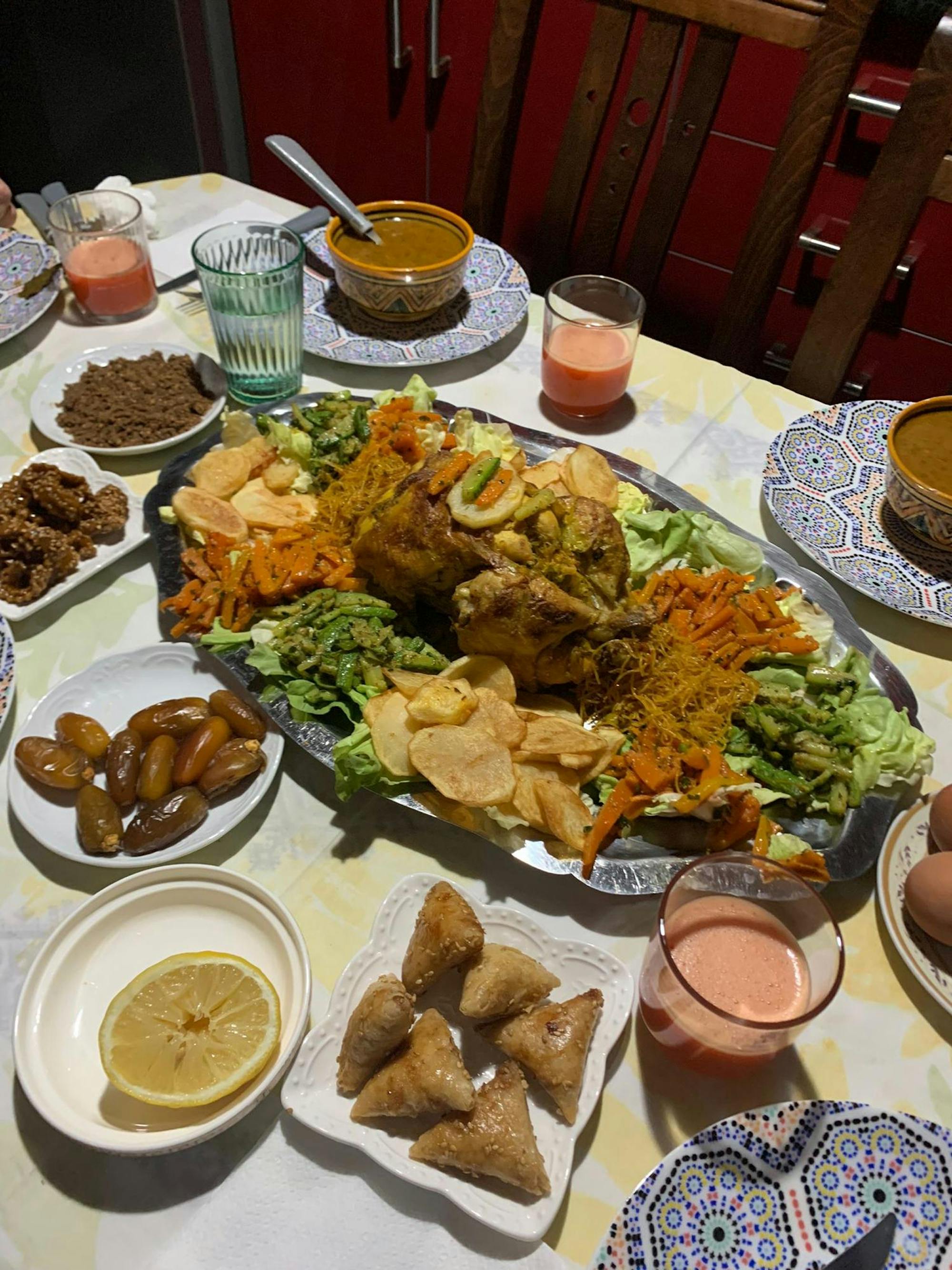On March 11, Moroccan officials caught the first glimpse of the crescent moon, marking the beginning of Ramadan: the holy month of Islam in which Muslims abstain from eating and drinking until sunset.
The beginning of Ramadan coincided with my spring break, meaning I was not able to experience the first few days of Ramadan in Morocco. But between watching the city frantically prepare for the holiday and returning to a new environment, completely immersed in the Ramadan spirit, I can now say that I’ve experienced the unique ethos of Ramadan in Morocco.
During the week leading up to Ramadan, my host mom, joined by her mother and sisters, slaved away in the kitchen cooking and baking hundreds of traditional treats to store and eat throughout the month. These treats included msemmen (Moroccan pancakes, similar to roti), chebakia (little sesame cookies soaked in honey) and briouat (puff pastries with sweet or savory fillings). In true Ramadan spirit, they prepared these dishes alongside one another.
Now that the holy month of Ramadan has started, I can see that this culture of sharing seeps into every component of the holiday and its traditions.
Every morning before dawn, all of Morocco is woken up by the muezzin proclaiming the call to prayer. Muslims all throughout Morocco, and all throughout the world, wake up, often eat a quick suhoor — the before-sunrise meal — and begin their fast.
Fasting for Ramadan is one of the five pillars of Islam. Fasting reinforces piety and teaches self-control, but it also acts as a reminder of those who do not have adequate food and water. By voluntarily fasting, Muslims share in this plight and build a kind of solidarity between one another.
After a long day of fasting, Muslims gather for iftar — the fast-breaking dinner that takes place at sunset. It is rare to have iftar with just the immediate family. At my house, for example, we are joined by various members of my host mom’s extended family. Many Moroccan youth, on the other hand, have iftar at the beach with their friends. They all gather to break their fasts side-by-side over feasts of tagine, soup, bread and, of course, more sweets. Morale is low — everyone is tired from fasting the whole day — but they share in this feeling too.
The whole country has shifted its routine in front of my eyes. They are united by the shared hardship of fasting, by the shared joy of spending time with family and by the shared devotion to their faith. Their individual experiences form one united way of life.
Both in theory and in practice, sharing rests at the crux of Ramadan. And since Morocco is a non-secular country, this spirit of sharing in Morocco has transcended religious practice and been adopted into the country’s culture.
This is exactly what makes experiencing Ramadan in Morocco so extraordinary.
Ramadan Mubarak to all who celebrate!






